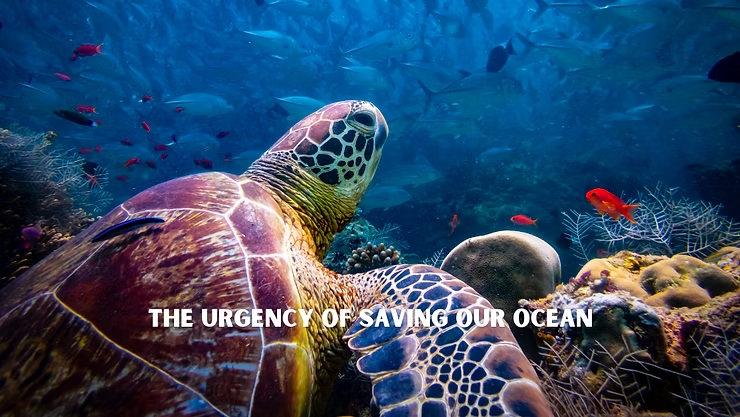Overview
The Importance of the Ocean Ecosystem
The ocean ecosystem is a vast, interconnected web of life that sustains our planet. From microscopic plankton to whales, it supports incredible biodiversity while producing more than half of Earth’s oxygen and absorbing carbon dioxide to regulate climate. It also provides food, jobs, and resources for millions of people worldwide. Preserving the ocean is vital not only for marine species but for humanity’s well-being.
Threats to the Blue Ocean
The health of our blue ocean is under serious threat from pollution, overfishing, and climate change. Plastic, chemicals, and oil spills pollute waters, while unsustainable fishing depletes stocks and destroys habitats. Rising sea levels, acidification, and coral bleaching caused by climate change further endanger fragile ecosystems. These combined challenges demand urgent, coordinated conservation efforts.
Current Conservation Efforts
Governments, NGOs, and communities are working globally to safeguard the ocean. Strategies include:
- Creating marine protected areas (MPAs) to shield vulnerable ecosystems
- Organizing beach cleanups and waste management campaigns
- Strengthening international cooperation on climate and fisheries management
Supporting and expanding these efforts is critical to ensuring long-term ocean health and sustainability.
The Impact of Pollution
Plastic Pollution
Single-use plastics and poor disposal methods fill oceans with waste, harming marine life through ingestion and entanglement. Microplastics and toxins also disrupt ecosystems. Reducing plastic use, recycling, and finding alternatives are essential solutions.
Chemical Pollution
Runoff from industries and agriculture introduces toxins that damage marine species’ health and weaken ecosystems. Limiting chemical discharge and adopting safer practices are urgent priorities.
Oil Spills
Oil spills devastate ecosystems, poisoning waters and killing wildlife. The damage can persist for decades, making prevention and rapid response crucial.
Overfishing and Its Consequences
Depletion of Fish Stocks
Unsustainable fishing has sharply reduced fish populations, threatening food security and ecosystem balance. Stronger management and quotas are needed to reverse the decline.
Destruction of Marine Habitats
Practices like trawling and dredging destroy coral reefs, seagrass beds, and mangroves, stripping away essential habitats. Habitat loss undermines biodiversity and ecosystem resilience.
Imbalance in the Food Chain
Removing key species disrupts predator-prey dynamics, causing cascading effects throughout the ecosystem. Restoring sustainable practices can help rebalance the food web.
The Role of Climate Change
Ocean Acidification
Rising CO₂ levels lower ocean pH, weakening coral, oysters, and plankton shells. This threatens the foundation of the food web and disrupts entire ecosystems.
Rising Sea Levels
Melting ice and thermal expansion cause floods, erosion, and habitat loss for coastal communities. The impacts intensify storms and disrupt freshwater systems.
Coral Bleaching
Warmer seas stress corals, turning them white and leaving reefs vulnerable to collapse. Protecting reefs is vital as they shelter countless species and support coastal livelihoods.
Conclusion
The blue ocean is under immense pressure, yet it remains our planet’s lifeline. Combating pollution, ending overfishing, and addressing climate change demand global cooperation and local action. By choosing sustainable practices and supporting conservation initiatives, we can restore ocean health and secure its benefits for generations to come.

